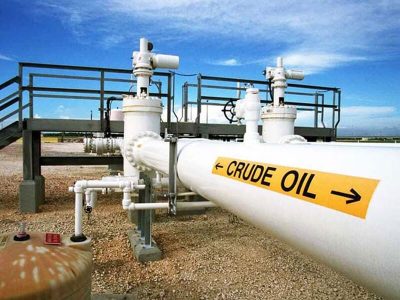OPEC+ increases Nigeria’s production quota despite missing targets
The Organisation of the Petroleum Exporting Countries and its Russia-led partners decided on Wednesday to raise oil production by 400,000 barrels per day in March, sticking with its plan of unwinding remaining production cuts by the end of the year.
The decision was taken at the 25th OPEC and non-OPEC Ministerial Meeting held via videoconference.
The group, known as OPEC+, increased Nigeria’s oil production quota to 1.72 million bpd for March from 1.70 million bpd in February and 1.68 million bpd in January.
It said in a statement that in view of current oil market fundamentals and the consensus on the outlook, it reaffirmed the decision of the 10th OPEC and non-OPEC Ministerial meeting on April 12, 2020 and further endorsed in subsequent meetings.
It reconfirmed the production adjustment plan and the monthly production adjustment mechanism approved at the 19th meeting and the decision to adjust upward the monthly overall production by 400,000 million bpd for the month of March 2022.
OPEC+ reiterated “the critical importance of adhering to full conformity and to the compensation mechanism, taking advantage of the extension of the compensation period until the end of June 2022”.
It said compensation plans should be submitted in accordance with the statement of the 15th meeting, adding that the next meeting would hold on March 2.
“The news was hardly surprising, as the group has rigidly followed this approach since it was first agreed upon, even in December when oil prices plunged following the emergence of Omicron,” a commodities economist at London-based Capital Economics, Edward Gardner, said.
He noted that oil prices had more than recovered since December.
He said, “What matters going forward is whether OPEC+ can keep up with its planned production increases. In recent months it has struggled to do so, and in December the core OPEC-10 group raised supply by just 166,000 bpd, below its planned increase of 250,000 bpd.
“If OPEC+ continue to under-produce, it is possible the group will schedule slower production increases this year. But with prices so high, there is an incentive to instead re-configure the scheduled increases, allowing countries with greater spare capacity like Saudi Arabia to raise production faster, but this could prove difficult to agree on.
“Whatever OPEC+ decides to do, we think it will still raise production by a significant margin this year and contribute to the global oil market shifting to a surplus. This underpins our forecast of oil prices falling, with Brent finishing the year at $70 pb.” (Punch)


